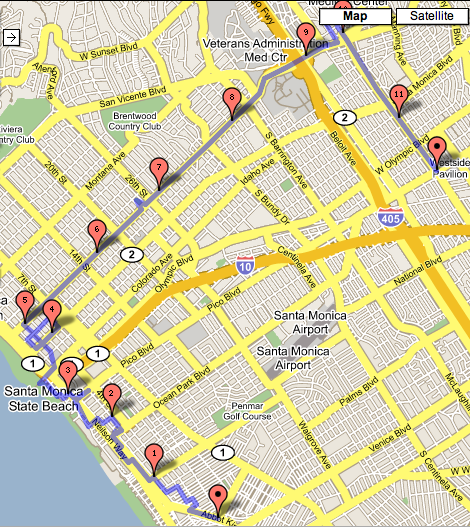If you’re interested in this Web 2.0 thing, and you haven’t yet read Abe’s thoughts on it, you should. His distinction of the insiders (those who build the tools) and the outsiders (those who use the tools) is reminiscent of Neal Stephenson’s use of Eloi and Morlocks (click and scroll down a bit) as a way to distinguish between the hackers who build our technological systems, and the people who use them.
And while I find Abe’s views valuable, I feel the need to question two of his many claims. The first is this idea of the early Web as one where “anyone” could build. I simply don’t think that’s true. Because not “anyone” could master HTML, not “anyone” could understand the arcana of registering domain names and pointing them to a server, not “anyone” could figure out how to upload something via FTP. Many people recognized Blogger’s early success as simply putting a friendly interface on FTP. So for however easy those earlier approaches seemed, these publishing tools have made them much much easier — and allowed a far greater audience the ability to contribute.
Later on, Abe references my essay on relinquishing control, and claims,
“In the end he’s not just arguing that companies should relinquish control, rather he’s arguing that they should relinquish control over to him, his company Adaptive Path, and others that share their philosophy. Reliquish control over to the professionals, those that know what they are doing, know how to control things on the internet.” (Emphasis his)
As the author of that essay, I feel confident in saying that Abe’s take, on this point, is balderdash. One of the challenges facing Adaptive Path, and anyone seriously pursuing designing in this space, is that we as designers, we as professionals, we as those who think we know better, we, too, have to relinquish control. And that is exactly what I meant in my essay. If I were to truly believe what Abe claims I meant, I would be hypocritical. I don’t want companies to give control to me. I want them to give control to their customers. Because if there’s one thing I’ve learned, those of us who “know what they are doing” often don’t.
That said, Abe provides some remarkably cogent critiques. He’s right to have called into question my use of Netflix in my original essay, because, clearly, Netflix isn’t relinquishing control, but shifting how control is levied. And I think this suggests a potentially interesting path of investigation — what are appropriate forms of control in this space? What control are people willing to give up, as long as they receive it elsewhere?






